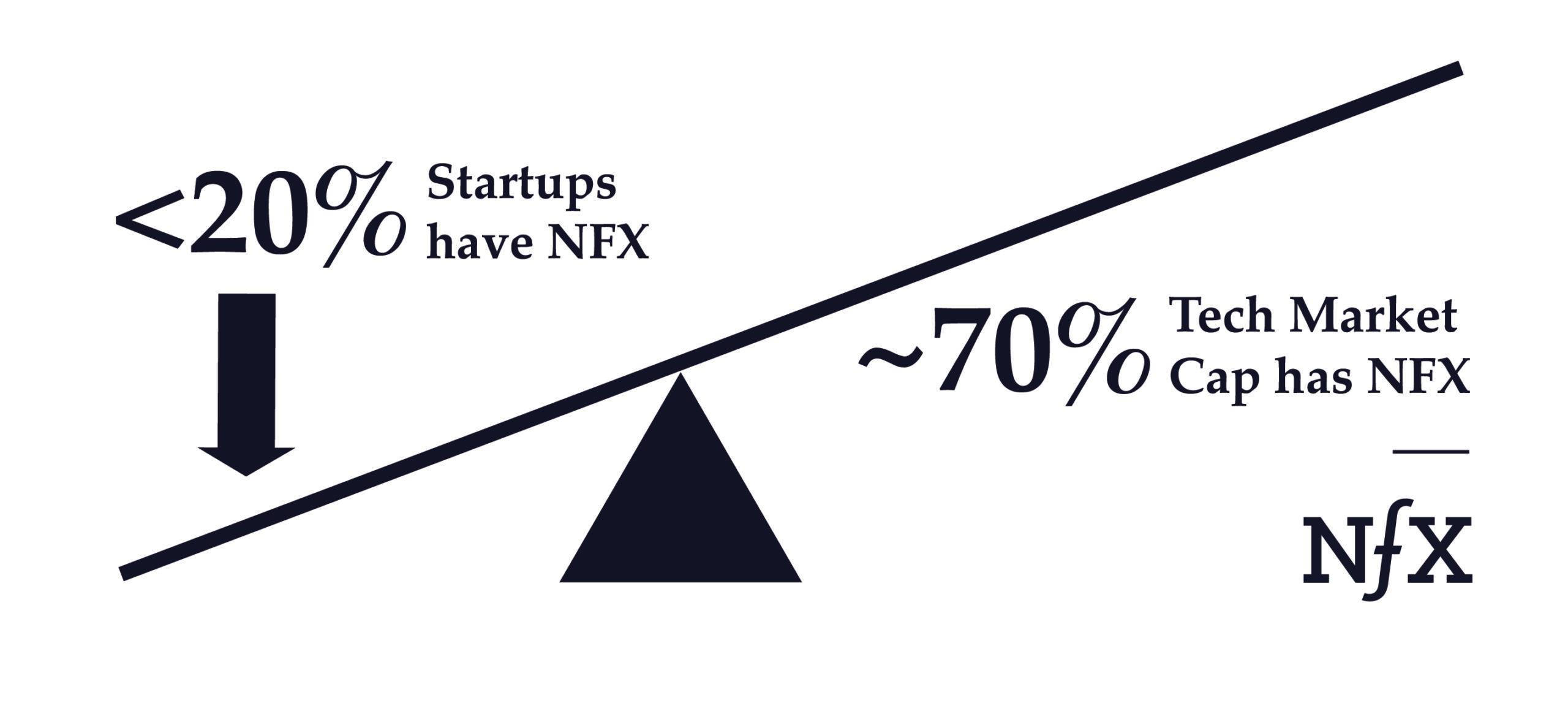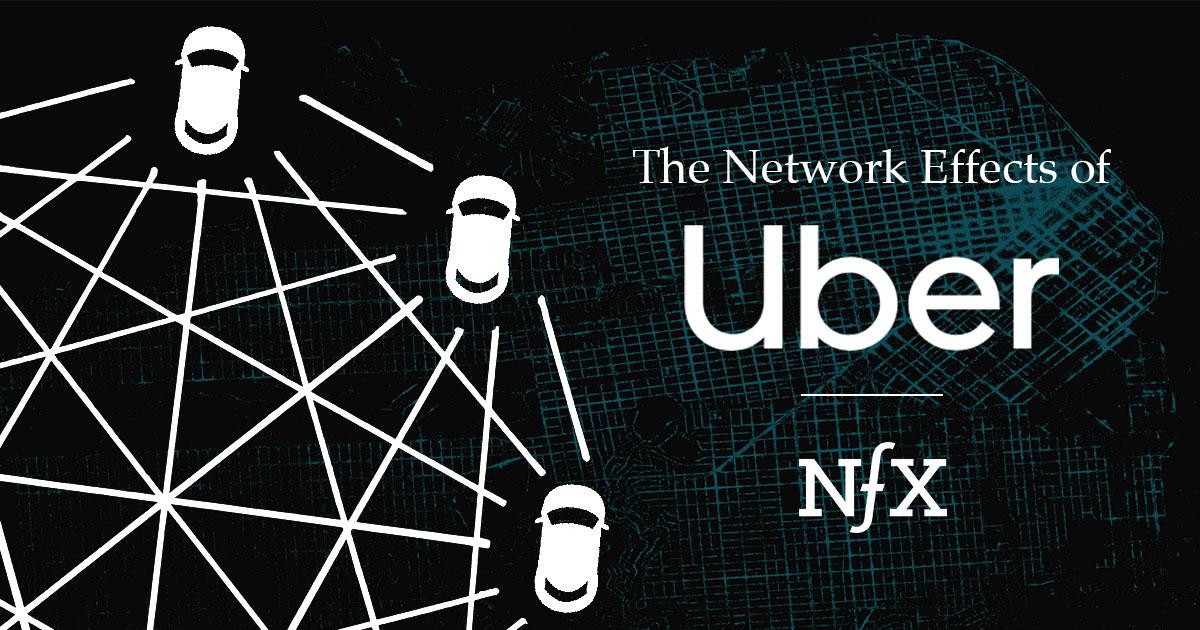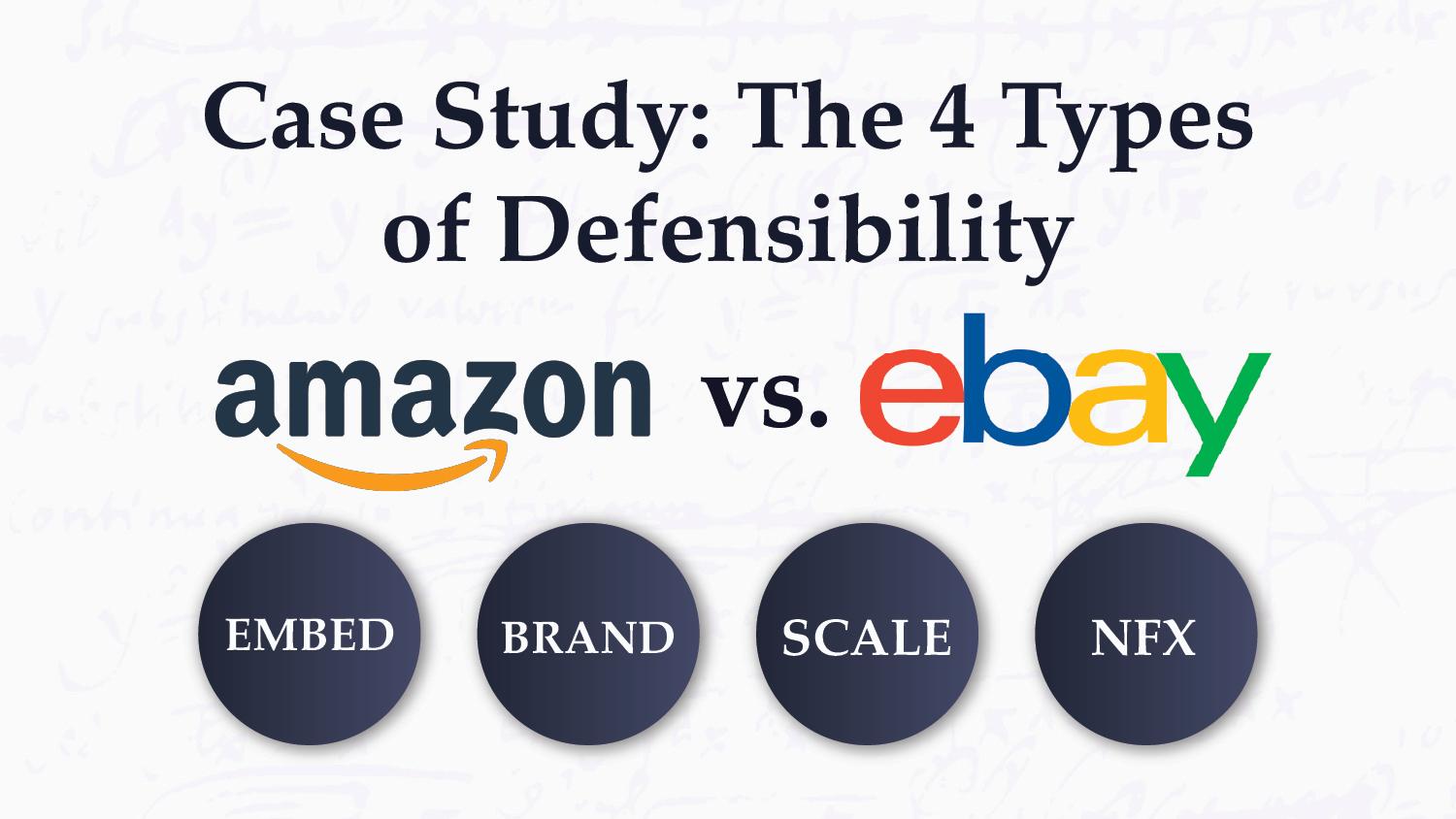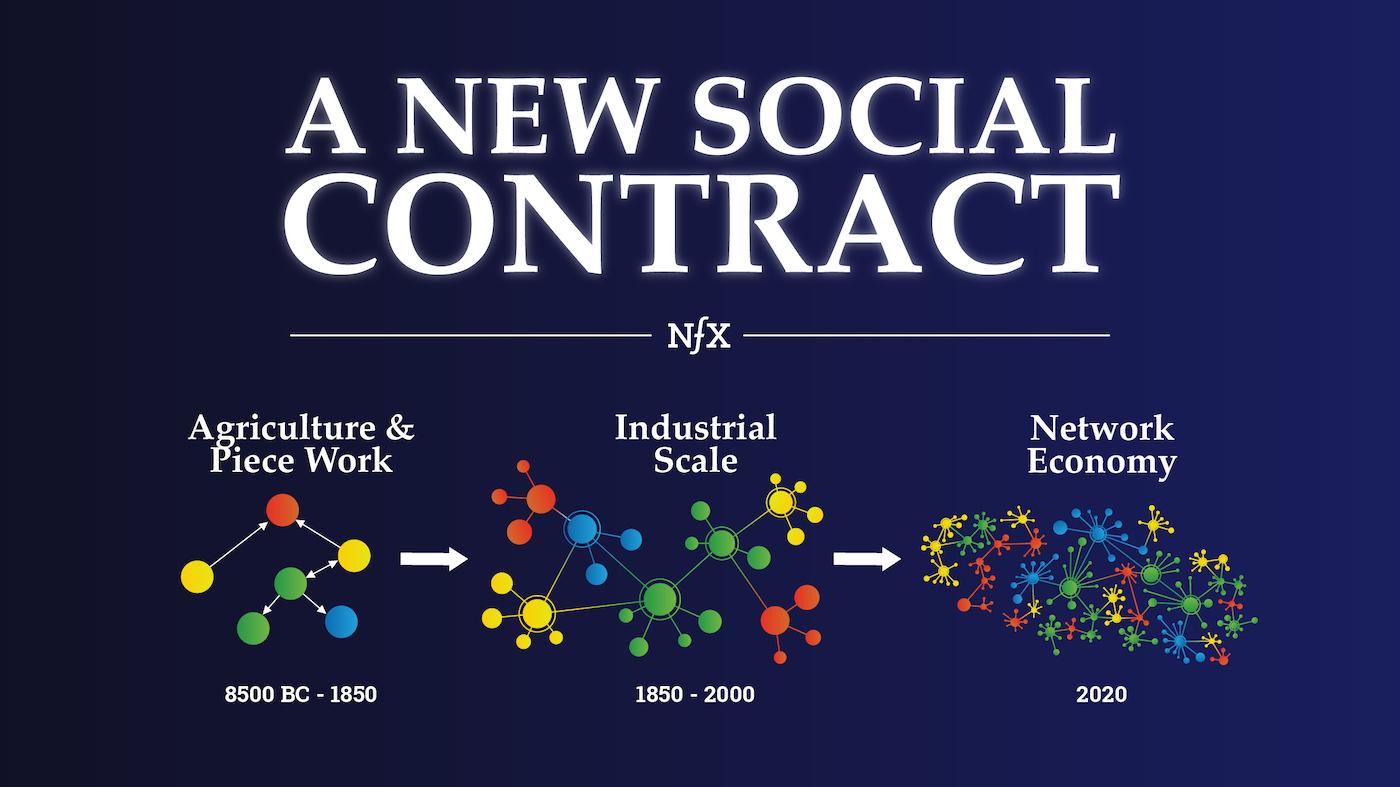

Network effect businesses are reshaping the world.
We spend a lot of time teaching Founders how to use network effects to create these giant, world-changing businesses. Network effects are still the best and most powerful force we know to create persistent value for billions of people.
However, we think that too little has been said about how society should adapt to these new network effect behemoths we’re helping create.
We need new social contracts or we’re headed for some nasty conditions.
And we believe it’s up to tech Founders, VC’s and employees to do something about it. It’s up to us. Governments and other traditional forms of hierarchical power are ill-equipped to understand the network economy and evolve the new social contract. The reason they are ill-equipped is that they live in a hierarchical world of scale, and we live in the networked world. Different technologies lead to different mental models, different languages, different tools for making positive outcomes happen.
We think that if you are starting or working on a network effect business, it’s your responsibility to thoughtfully set up social contracts with your different constituents. For instance, it could be wise to start sharing ownership with the creators who are adding value to the networks, platforms, and marketplaces you’re building.
You need to have a perspective about what you are giving and getting from the people on these networks, as well as what you are giving and getting with your employees.
By creating network effect businesses, we are the ones with lightning in our hands. We must make sure we’re creating a positive game with the people in and around our networks. So let’s get it right.
Let’s first understand how the network economy works, and how power, wealth, and status all flow on the network. Then, we’ll look at the implications of this and finally specific ideas for Founders about what these new social contracts could look like.
Here we go.
The Network Economy Is Here
Alvin Toffler predicted the network economy 50 years ago, and now it’s here. He first published “Future Shock” in 1970, and it described three waves of economic production. The first was the agrarian economy, the second was the industrial scale economy, and the third would be the information economy.
I think he was close to nailing it. My one change would be that the third wave is not “information” but rather, “networks.” Back in 1970, Toffler had only seen computers. He didn’t have the benefit of seeing the Internet, so he mislabeled what he was seeing. As it turns out, information in this third wave of networks is just like oil was in the industrial second wave — just an input to the real means of production. And the real means of production in this third wave is the network itself.
Certainly, networks have always been in play. Merchants trading 4,000 years ago were in a network of boats and bazaars. That network was small, carried a lot of friction, and information moved in months, not seconds. But we can recognize it as a primitive network of people and resources interacting.
Then in the industrial age, the network underlying economic activity was 100X larger and denser, but the real value was in the mass production assets and processes.
Today, thanks to the Internet, the network is 1,000X bigger and denser, and the real value is in the network itself. Real power and wealth emerges in network effects.
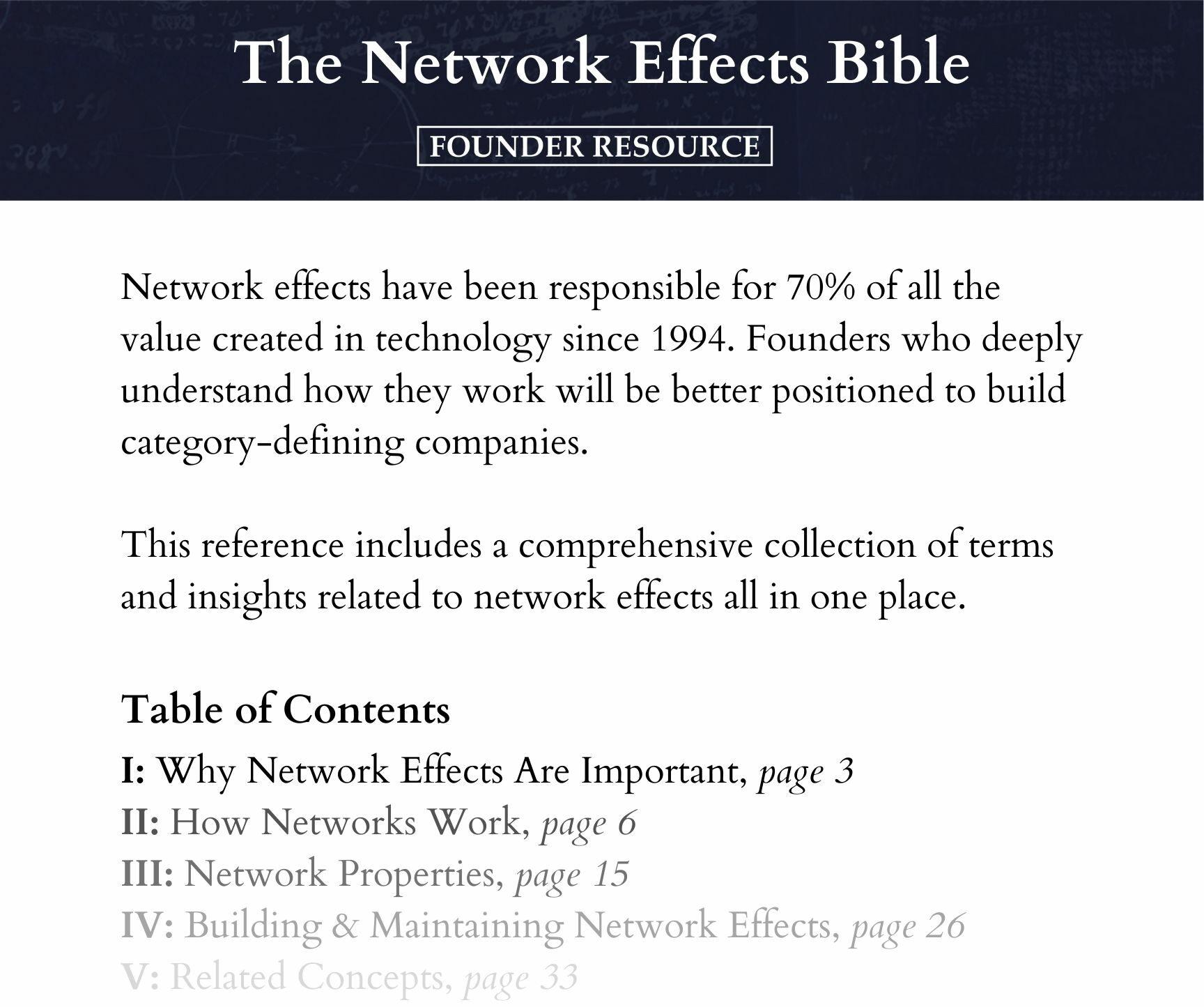

Toffler predicted this third wave, and by 2020, it has already happened: We have switched from one means of production to another. To navigate your career, to be a world-class Founder, you have to understand this. The network economy is here.


How do we know the network economy is here?
First, nearly 5 billion people are now connected to the common network, representing 90%+ of the economic activity on the planet. As futurist George Dyson says, with more than a little awe, “At some point in every planet’s history, it gets wired up and connected into a whole, just once. We have been alive at that time.” It’s a big deal to get wired together. Primarily because there are new network effects to build. Lots of them. And these stack and reinforce each other at ever greater rates.
The second way we know we’ve moved to the network economy from the scale economy is by looking at changes to the world’s top 12 most valuable companies. Where is wealth, wisdom, power, and status accumulating? In 2004, only 1 of the top 12 companies by market cap had a network effect in its business model. Today, 8 out of 12 have a network effect at their core.
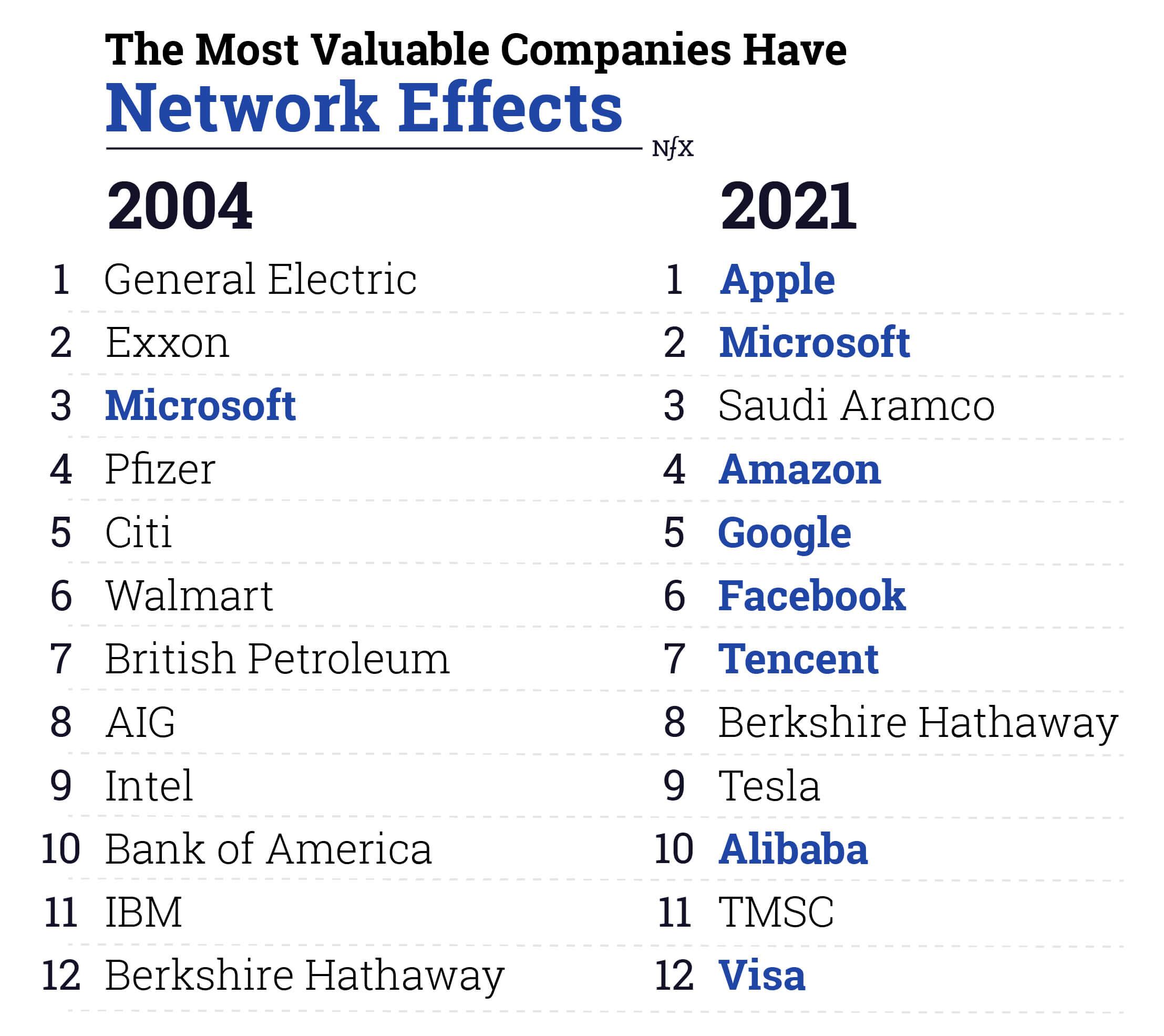

These network effect winners, these new big firms, have power in a way we haven’t seen before, because their power also comes from us using them, not just from something that they do. The more we use them, the more valuable they become to all of us, and the more pain we would feel if we had to stop using them. We’re never gonna stop.
Facebook is the perfect example. Their demise has been wished for by some, and has been predicted in several waves. In 2018, we published this essay and video simply explaining the structural reasons that Facebook isn’t going anywhere. At the time, they had a market cap of about $500B. Now it’s close to $1T.
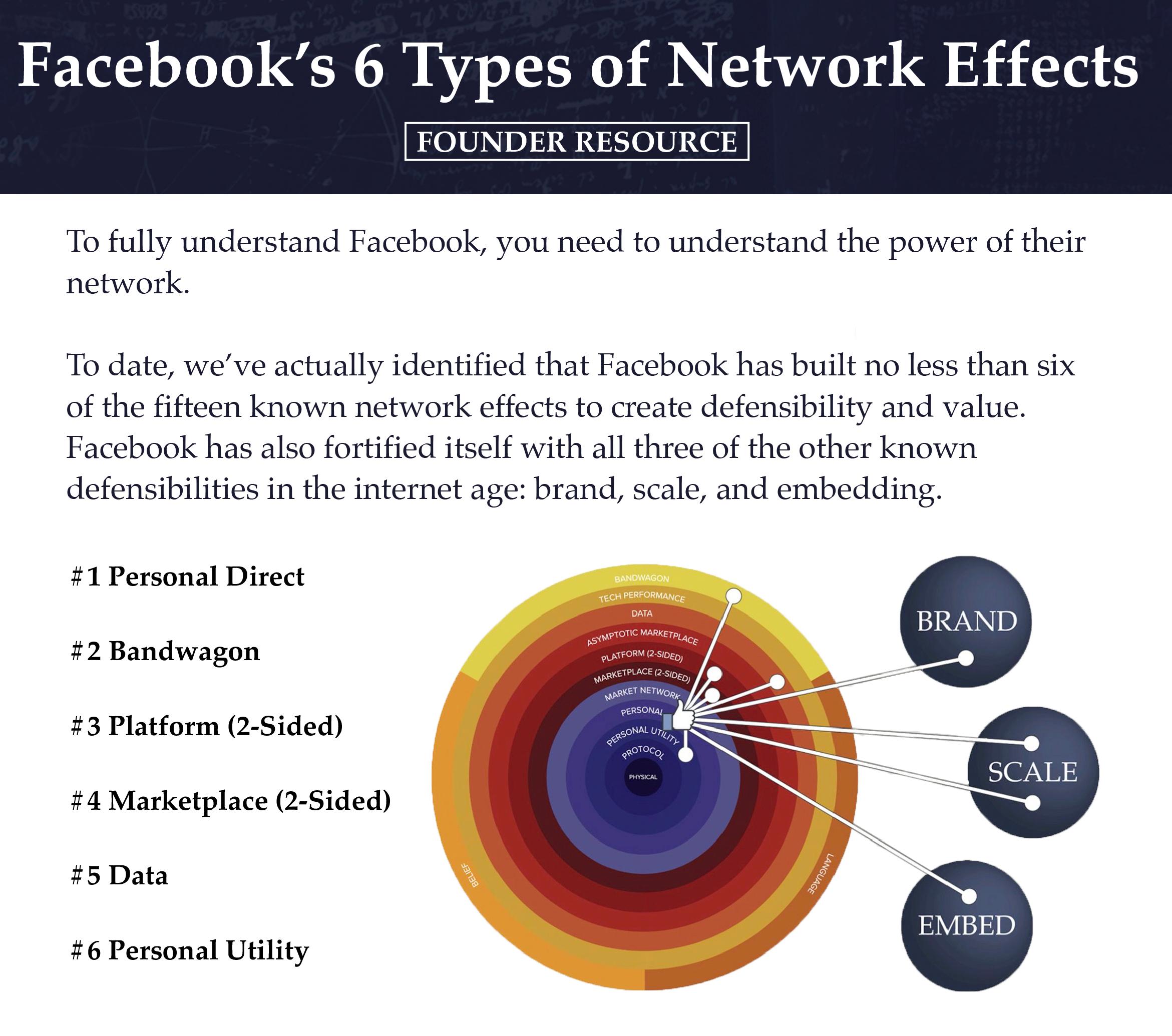

Here’s the big change we all need to understand. The network itself is now the means of value creation, and thus wealth creation. Wealth, wisdom, power, and status all flow on the network.
(Sure, China, India, and other countries will start adding incremental restrictions, but the big picture is that we can see each other and communicate about most things instantly and for zero marginal cost.)
Those with power in the old, scale world, like governments and manufacturing companies, will just get more and more disgruntled by these new powerful network effect players. They don’t understand where the power is coming from. They see these new companies as the “nouveau powerful,” to be looked down upon by members of the old club.
Certainly, all leaders like Mark Zuckerberg and Jack Dorsey can “do better.” But we all need to accept that their power is coming from network effect economics that would accrue to anyone running those businesses. Those network effects are now all around us, and they aren’t going away.
Further, you’re going to see the dominance of networks continue to accelerate as “software money” replaces money, just as money replaced gold. That process has been underway with the computerization of banking and trading over the last 50 years. Crypto is likely a 10X accelerant of that change. Crypto/Defi changes the nature of money because, unlike gold or paper money, crypto is a native creature of the new global network. It amplifies the “belief” network effect and produces new wealth from new connections. Again, the network itself becomes the means of production — at an accelerating rate.
Now let’s look at what else changes, what problems and opportunities that creates, and what we are going to do about it.
What the Network Economy Changes
Now that this new Network Economy is here, we can already see what’s different.
1. Transparency in two forms:
- Money Transparency: We can now all see each other. We can see what other people have, how much money they are making, and how they are making it.
- Ranking Transparency: We all get numerically ranked. You don’t think you have a number on you? Of course you do. The Substack you’re writing is ranked, the website you run shows up below another in Google, your dog walking business is reviewed on Yelp, your Instagram photos and Facebook posts are ranked by likes and such, and even your friendly or not so friendly comments on NextDoor come with some implicit ranking attached. At all times, we can each see where we are in our rankings compared to all the other people.
While this helps others “find the best people” and that is helpful to the demand side, make no mistake, this ranking transparency creates psychological suffering for people on the supply side to see they aren’t near the best. In the old days, before network transparency, we just didn’t know. We were heroes in our small worlds. We could fool ourselves. Now we can’t.
“We’ve all been raised on television to believe that one day we’d all be millionaires, and movie gods, and rock stars. But we won’t. And we’re slowly learning that fact. And we’re very, very pissed off.” — Tyler Durden, Fight Club
2. Power laws now create even more unequal money outcomes.
The rich get really rich, and the poor get poorer by comparison. Unfortunately, this has always been true. It is not an artifact of modern economics. This power law of society is a mathematical principle that has frustrated people forever. It’s mentioned no less than five times in The Bible. They were struggling with it even back then. It was first mentioned in the Book of Matthew, and so has been labeled the Matthew Effect.
“For to everyone who has will more be given, and he will have abundance; but from him who has not, even what he has will be taken away.” — Matthew 25:29
But the network economy puts the power law of unequal outcomes on steroids in three ways:
- Lower and middle performers are exposed. The network reduces by 100X the frictions that used to protect people from the natural math of the power law.
- Access to bigger markets. The winners now have instant, and zero-marginal-cost access to everyone in the world to be a customer, so they can make more money.
- Regular people get hyper-optimized on the edges of the network. Unless you’re popular, or beautiful, or brilliant, you get pushed out to the edge, the fringes of the network, where the algorithms can optimize your income in real-time like a Mechanical Turk worker of an Uber driver.
- Even if the network shares value with the nodes — in the form of shares, tokens, or bonuses — they have all the data on each node, so they may only need to share value with a small percent of the nodes who are critical to the stability of the network.
The Matthew Principle is eating society. And by definition, it doesn’t feel good to most people.
The Mathematical Power Of Central Nodes
The majority of workers on Uber, AirBnB, Amazon warehouses, YouTube, Patreon, Houzz, Zillow, etc are finding out that they are being danced by the algorithms of those central nodes. Those companies have network effects, and thus they empower their laborers/supply side with something valuable. And the labor chooses to use them. So it’s positive for sure. But those companies also have power over the labor/supply on their networks.
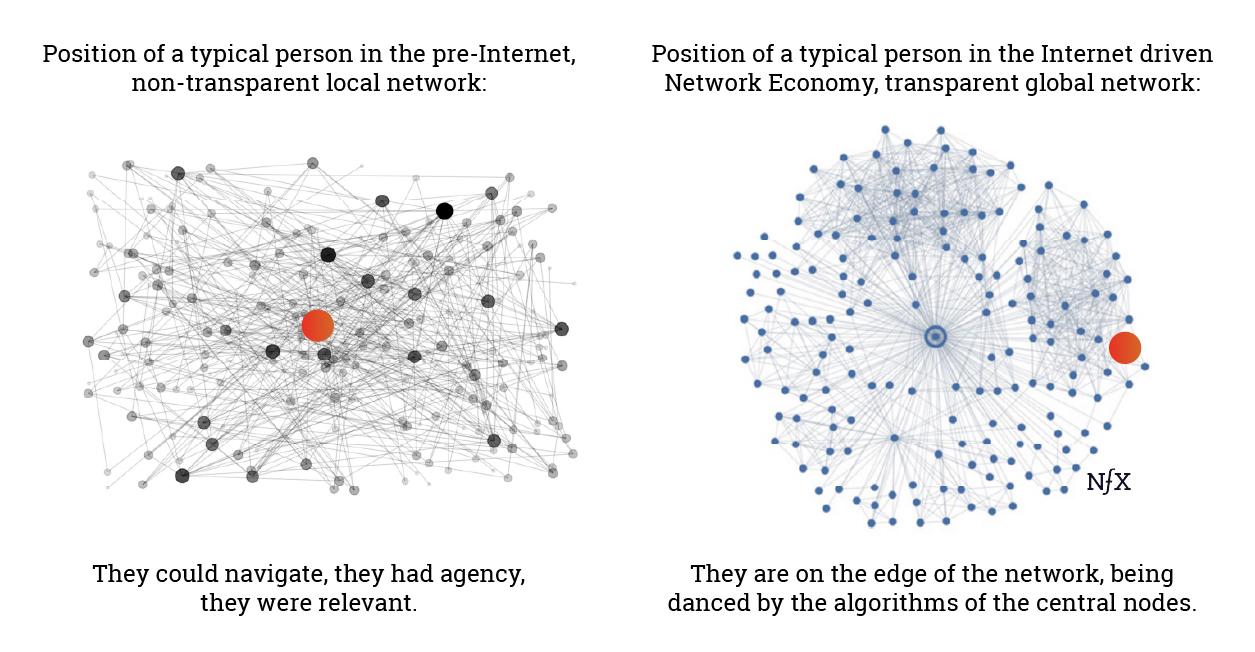

These people out on the edges of the network get measured in their performance in near real time, optimized against others on the network.
Further, these network hubs, these companies, in a logical attempt to serve the paying customers better, show the customers where each person stands in comparison to others on the network. So to win business, now you don’t just have to be pretty good in your town, you often have to be one of the best in the world.
Transparency and data provide ruthless meritocracy.
Meritocracy and frictionless access is good for the most talented, motivated or lucky. But for the bottom 90%, everyone can now see that they rank in the bottom 90% in performance. And the distribution of talent and success has never been equal to begin with.
Further, that distribution is not even in a bell curve. A bell curve describes something like human heights. Very few people are 4 ft tall, very few are 8ft tall and most are around 5 or 6 ft tall. But for attributes like performance, fame, status and wealth, life reflects a natural power law, not a bell curve like we see with human height.
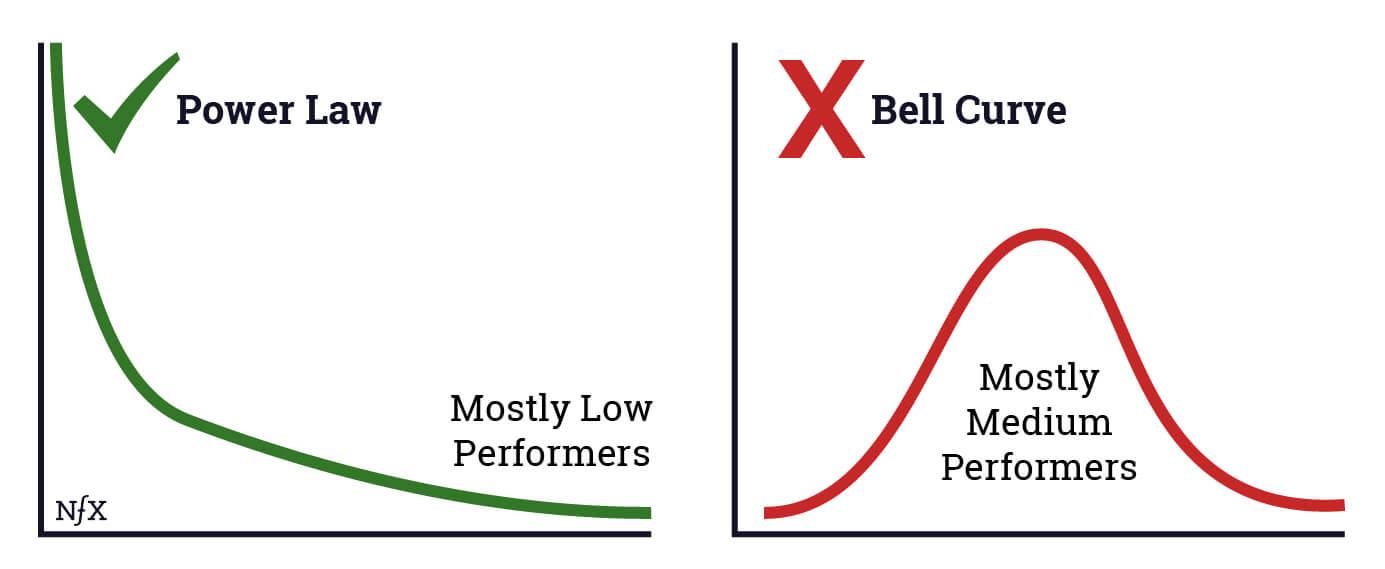

When the worker sees the power law, and they see they aren’t near the top, it’s psychologically painful and demotivating for many. It creates status anxiety. And it increases wealth disparity. It lets those ahead get further ahead, and those behind get further behind. The Matthew Principle, as we mentioned above.
Let’s look at five examples.
The Blackjack Player vs. the Casino
Imagine you are a blackjack player in a casino. You are an edge node, and the casino is “the house,” the central node. Casinos have the players coming in (demand), and the dealers dealing (supply). The casinos are geographically clustered in a primitive, non-digital, network effect with other casinos, like a “mall of casinos” to attract players and dealers. The casinos make the rules, and a blackjack player, an edge node, comes in to play.
Economically, you want to be the house, but you find yourself at the blackjack table. Sure, you might be the 1% who makes a lot of money. But most likely, you lose a little. And you’ll probably justify it: “Oh, it’s just entertainment. I like doing it, so it’s fine to lose.” Yet the casino rakes it in while you get danced by the primitive algorithms — 48.5% win ratio on blackjack if you play perfectly and as low as 32% win ratio on the slots. You have fun, but the math plays out to the benefit of the central node, and the disadvantage of the edge node.
YouTubers
A digital example is YouTube. YouTube is amazing and provides value to billions of viewers. It’s a revolution in knowledge that is still underestimated. For creators, YouTube has eliminated barriers to publishing videos. For them, the act of creating and sharing is a joy in and of itself.
However, YouTube is also like “the house” in the Casino example above — they win no matter who at the edge of their network becomes popular, because they have the network effect. Wealth is drawn to the center, the densest part of the network, in this case YouTube’s headquarters is in the SF Bay Area. Millions of edge people compete to move up the power law to win the game and be the 1% that makes money. When you win and are in the top 1%, you thrive economically. And hope keeps the rest striving, because they can see you winning. But very few people posting on YouTube will make much money.
Real Estate Agents
In my town, we had 38 real estate agents, but no one used to know who the best agents were, or who was selling the most. But now you can easily see it on Trulia and Zillow. You can see the power law. 30 years ago you couldn’t see the power law. That data was neither tracked effectively nor displayed effectively. Back then, it seems, if you were an agent who ranked near the middle of the power law somewhere, when you went to sleep at night, you could feel good about yourself, because you were making a good living and doing decent work and you couldn’t easily see that the best agent in your town was making 7x more than you.
Now anyone can easily see that 80%+ of all residential real estate commissions are made by the top 9% of agents and that you aren’t one of them. And for 91% of us, it’s uglier than we thought.
Of course there are significant benefits to home buyers and sellers from this transparency. They can go straight to the most effective agents to save time and get the best deal. It makes sense that home buyers/sellers want to work with the best agents. Why would they trust their most important financial transaction to anyone but “the best?”There’s also some motivating benefit to the agents who now have plenty of data and feedback to learn and grow from.
Either way, this network transparency is affecting how we think about ourselves. We humans were not built to get so much information to see where we actually sit in the power law. We are learning how to deal with that new perspective.
High School Kids
In 1981, US New & World Report first started publishing a strict hierarchy power law for US colleges. Suddenly, the data was collected, it was displayed effectively, and the network power law was there for all to see. And you knew that other people knew because it was so transparent.
In many ways, this worked to open up a world of colleges that high schoolers never considered before. It gave them permission to move geographically and disperse into new networks.
But there’s no denying that there are also long-term consequences of seeing this power law. We’ve seen pressured kids committing suicide (Palo Alto, Dallas), and rich parents serving jail time (Varsity Blues documentary) trying to win the game.
This will be repeated in niche after niche as the network makes power laws legible, and people – homo sapien pack animals who are keenly aware of hierarchy and status – see where they are in the hierarchy. For some people, it will light a fire in them to go out and do their best and win. But it’s likely that 90% won’t be happier for it. Ignorance is bliss. We’re eating the apple. We’re losing our ability to be naïve about our real stature.
Uber Drivers
If you are driving a car for Uber, or doing piece work on Mechanical Turk, our first thought a few years back was: hooray for the gig economy and freedom and flexibility. There’s a lot of good to come from it. But you also only have a chance of linearly improving yourself, like being a factory worker in the 1850’s. Flexible time, but no ownership, no benefits, no learning, no community, no potential for geometric growth, and always subject to the changes they make at the center of the network, the tweaks they make to the algorithm and the rules of the game. If you get depressed or hurt or addicted, or if your parents or children need you, the network doesn’t need to care about you, the edge person, you will be replaced by another set of hands. You do piece work for the minimal compensation, building nothing but your rating on their system, accumulating no leverage the more you work. Your 1st day is similar to your 1000th day.
There’s a set of jobs that used to be middle class like architects or doctors, but those will be increasingly sent to the network, and the lowest, fastest bidder will get that work for less than people in the US have been making. This is hyper globalization. It’s the 10Xing of what we saw in the 1980s when the US lost its lead to global competition in many important industries of that time like steel and autos.
The central companies of the network economy have an even greater impact on their stakeholders than the scale giants of the past like Standard Oil and GM. That’s because in the scale economy, you could opt for one product or another if you didn’t like it.
But now, we have to be on the network. We are captive. We weren’t captive to GM, but I am captive, for example, to Google and Twitter because that’s where everyone in my field is. I can’t escape that situation. We are captive to LinkedIn because that’s how we are seen by employers and partners we care about. And we can’t opt out like we could with GM.
Also unlike with GM, Uber drivers have to interact with the Uber network in real time. With Ford, I bought once and used the product for 15 years. They couldn’t watch me. Detroit didn’t have easy access to my name and financial profile. But these digital networks can optimize our time and income/benefit from minute to minute. They are constant parts of our lives, extracting what they can from every node in the network. They know who we are, and they know our family and economic contexts. That’s why the edge nodes of the network are at such a disadvantage.
Most of us are edge nodes and we are being danced by the center algorithms. And here’s the thing. Those algorithms emerge from a network of employees in the central node companies. It’s not one person who is mean or has ill intent. It’s a network of people who have incentives to perform and get respect within the network of people in which they spend their days. To “do a good job.” To “improve the numbers,” just like all of us do.
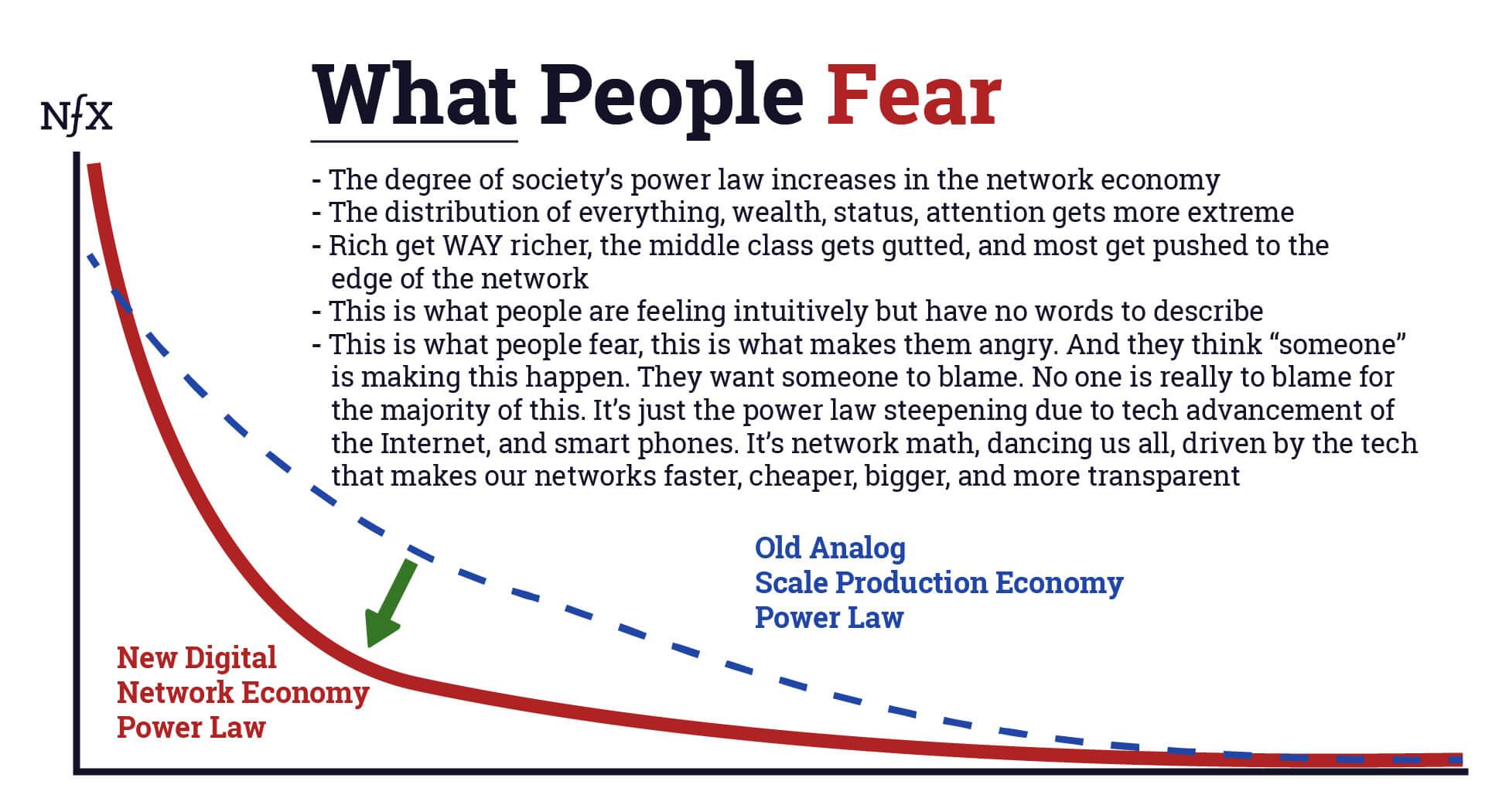

Here’s an important shift: in the network economy, we have a new concept of self. A similar shift took place in the industrial revolution when we moved from self-sufficiently tilling our own soil to being on the production line and being part of the machine on the loom. The industrial revolution caused a change of consciousness, and we are having a sweeping change of consciousness now in who we are and what our place in the universe is.
The Positives of The Network Economy
The reading so far has probably felt dire. But there are at least three positives here.
First, the network economy is going to improve the odds and access for people traditionally disadvantaged by gender, race and geography. The mathematical network world cares less about those things in many cases. It just cares about performance. It will improve things for people who live in traditionally disadvantaged geographies like Bangladesh or Somalia because it gives them access to stable trust networks they couldn’t access before. It will improve things for people who were traditionally disadvantaged due to racism. It will improve things for people who are new immigrants to a country.
Second, if you know how to build network effects businesses, you are in the driver’s seat. You can build great businesses that emphasize the good they do for people and work to minimize the potentially negative.
Third, the power law curve above is probably not correct. Instead, take a look at the curve below. The power law gets steeper, but the 90% of people are also lifted higher economically than they were before. It’s not some fantasy of trickle down economics. Trickle down doesn’t work because it existed in a hierarchical structure based on the scale production technologies of the times before 2000. There was much more friction in that old system. But in a network economy, the means of production have shifted. It’s 10X more fluid, can create wealth at a much higher rate, decrease costs at a much higher rate, and the network can raise all boats.
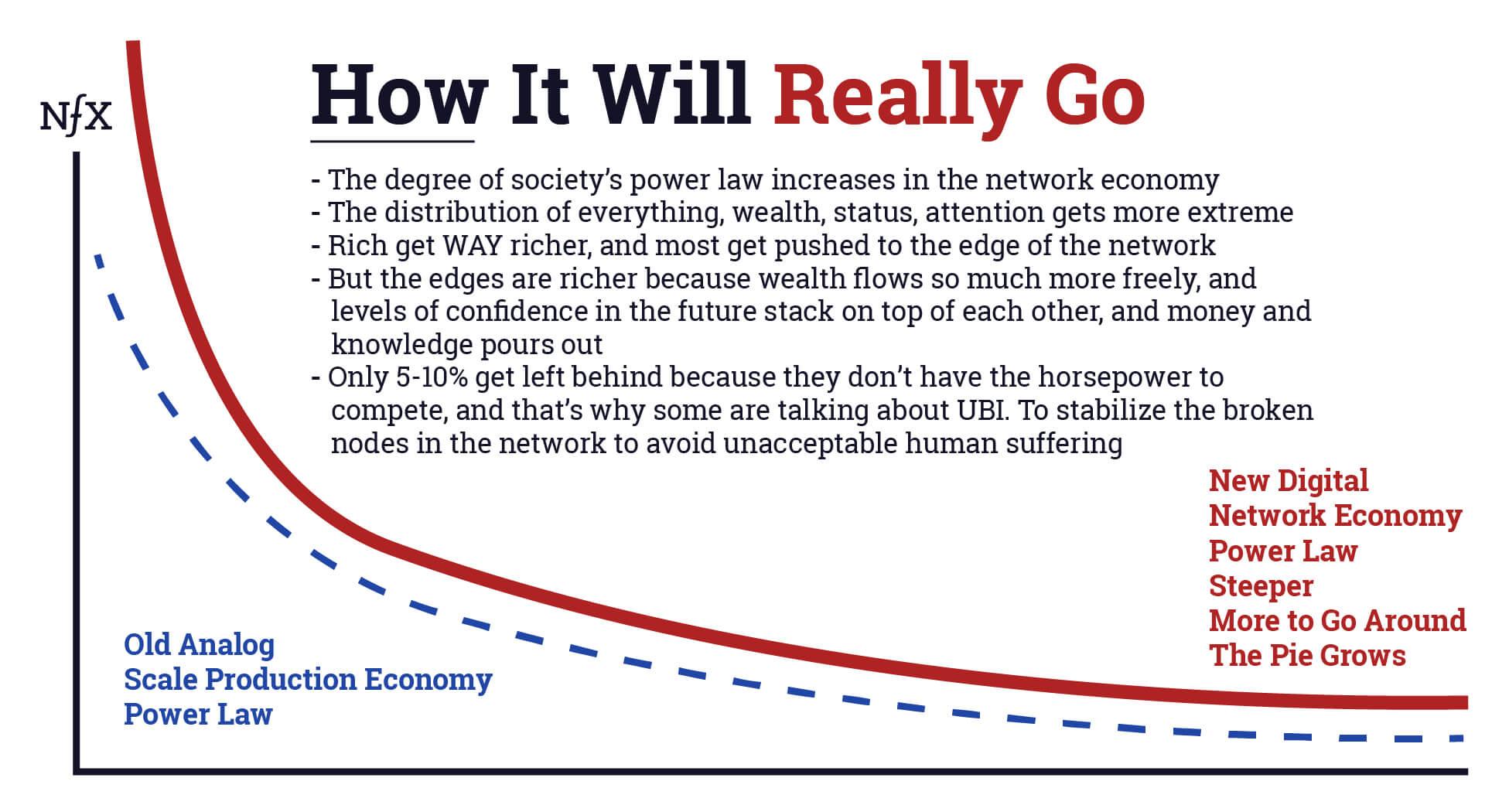

Well, that’s great… but won’t the central nodes figure out how to capture all this margin, too? Yes, they will try. It’s in their nature. And won’t most people still FEEL worse because now they will have to see, through network transparency, that they are low down on the power law in money, performance, and status? Yes, to that conclusion, also. We as a people could still feel bad.
And all of this is why we need a new social contract.
The Network Economy Needs A New Social Contract
A “social contract” is a mostly unwritten agreement between a company and its stakeholders, or between a society and its stakeholders, to cooperate for mutual benefit. It’s an implicit agreement that most of us buy into so we can pursue “the good life.” It’s an animating story that brings a nation, or a world, together. It’s what we can expect from each other. The rules of the game.
For example, the social contract in America after WWII between the government and its citizens was one you will probably find familiar: Graduate high school, buy a house, work 40 years for a big scale company or the government, retire at 64 and take up peaceful hobbies. That was the social contract, and every other story was built around that story. And the government’s job was to strive to enact laws to make this story come true.
During the same period, the social contract between big scale companies and their employees was that employees would devote 40 years of loyal service, and in return the company wouldn’t fire them and would give them a pension for a peaceful retirement.
Clearly, this old version of the social contract has been broken for 20 years already. Everyone agrees that that’s over. But not everyone agrees on what the new social contracts should be.
Here are some ideas of things that will be different now that we are living in a network economy.
Society’s Social Contract with Its Citizens
What’s the story, the narrative, we tell ourselves about why we’re doing what we’re doing? What can we expect from following the implicit agreement with society?
1. You will give up your privacy.
The citizen will give up some privacy so they can be better known and so the systems can help optimize their outcome. It’s a tradeoff.
For those who are emotionally aghast at any reduction of privacy, realize this has already happened, and when given the opportunity to share their data to get benefits, the vast majority of people will choose it, and already are today.
In return, the society will agree that:
2. If you’re willing and able, you will have a job.
In the past, one of the tragedies has been that someone who is willing and able could not get a job. With the internet, if you’re willing and able you can now do it with minimal costs (getting access to the internet). Driving Ubers, building websites, delivering food. If you want a job you can get a job on the internet. Geographically and temporarily flexible. More choices.
Unfortunately, the difficult part is the people who aren’t able even if they are willing. Some people aren’t emotionally or intellectually capable. They are too anxious or depressed or addicted to function at a high enough level to be valuable members of the network. Some are physically incapable due to a genetic disease or an accident.
Remember, the unemployment rate being at 5% doesn’t mean that 95% of people in the US have a job. That data comes from asking people if they want a job and are looking for a job but don’t have one. 5% of those people who SAY they want a job, don’t have a job. Many more than 5% don’t have a job because they’ve stopped looking given other limitations they have.
Further, the transparency and speed of the network technology will make it harder to compete. The bar will rise for how emotionally and otherwise intelligent you have to be to compete. The power law will assert itself.
The new technologies are going to leave behind people without emotional fitness, self-motivation, or intelligence. The internet shifts returns to people who are smarter and more energetic.
That sounds scary. Grounds for revolution. So what do we do?
The best way forward seems to be to “use network solutions to network problems” — build systems to augment people and keep them relevant to the network. More training, more support, more niche jobs, more connection through the network.
3. You will have access to training.
You already do. You can self-educate like never before, thanks to a near infinity of content on the internet. Plus, training AIs and content are just around the corner. And already many job interfaces are becoming like video games that could give you constant feedback as you learn a new job.
4. You will have freedom to choose your job and how you spend your time.
We are already seeing millions of people choose freedom over their time instead of other traditional benefits.
5. The government should not stand in the way of the growth of the network.
Governments are hierarchical thinking structures. They are dinosaurs, and networks are the first mammals. Networks are going to reduce the power of the nation states. International affiliations & connections are going to increase.
The new social contract should be to try not to hold on to people so tightly. The networks are coming, and our governments should not fight them on every count. Governments would be best to study Estonia, which enables people to apply to citizenship from all over the world. Estonia is not thinking about their nationhood geographically, they’re thinking about it like a network.
Same thing is true of crypto, which is the further networkization of money, which should produce new opportunities for citizens and wealth creation. Citizens will embrace the network economy and not cling to the scale effect economy of the industrial world, so our governments shouldn’t either. The scale economy will not go away, but it’s going to become a smaller part of life and the economy, like agriculture did in the industrial era.
6. You will have Mobility as a Lifestyle Choice
Staying in one place with a white picket fence is not the only acceptable American Dream.
A Company’s Social Contract With Its Labor Supply
When we’re talking about labor marketplaces like Uber, Mechanical Turk, Amazon Marketplace, Poshmark, DoorDash, UpWork, etc, you can have millions of people making their economic livings on your platform. They aren’t quite employees, but they are dependent on the platform for income, and the platform is part of their career journey.
When labor stays commoditized, it’s nearly impossible for those workers to unionize in the network economy. Many of these network effect systems are designed to make people interchangeable. The new jobs are geographically and temporally displaced, so it makes it harder for labor to negotiate because there’s always going to be a defector somewhere in the world who wants the income. The old leverage the unions had is gone. It’s also harder to establish an appropriate minimum wage because there’s greater dispersion / diffusion of the labor supply.
As a Founder, consider these ideas for a new social contract between companies and their labor/creators.
For the company:
The labor/ creator lets themselves be tracked, measured, and optimized, and the company gets to keep a copy of that data to run its business and maintain the relationship with the laborer for the long term. This is giving up some privacy for the laborer.
In return, the company will:
1. Give ownership.
Give laborers some ownership in the network, especially those creating the most value. Ownership can come in the form of tokens or shares. The best Founders will see this as an opportunity to tightly bond the labor/creators to their network thus creating more value for all.
2. Let people defect.
Let them have choice. Freedom. Not indentured servitude. Make it easy to vote with their feet. You can’t capture and keep the reputation they built on your network. They need to be able to bring it with them. Their data. Their network of people. You must allow that to easily be exportable. You will benefit in the end because those defections will push your team to get better and stay ahead of the competition. And it will keep the DOJ off your back.
3. Be transparent.
Transparent about how people are getting paid and when they’re getting paid. Don’t withhold payment. Pay them every day if you can. It’s just software now, we can do that.
4. Take care of their psychological needs.
Give them ways of feeling like they’re human instead of a drone. Add community into the work. This will increase retention and profit for you as the network designer. Help labor feel belonging as a person to your community of labor or to your mission or to your employees. People generally flourish when they feel like they’re part of something bigger, not atomized. Like they’re part of a tribe.
5. Give workers ways of feeling competent in your interface.
When you add creativity and decision-making back into work, then you can create the interface so they see when they are smart and making good decisions so they can feel encouraged and uplifted. This will increase retention and profit for you as the network designer.
6. Embed good management of people into the software.
This is a huge opportunity. Many people today suffer working for managers who aren’t good, or worse they are actively bad, sexually harassing people, demeaning people, being inconsistent and pernicious. You can write software to guide managers, make them better, reduce the bad elements of those bad bosses. Your software can model the best practices of the good managers.
7. Give them ways of helping themselves develop their careers.
Give them a path to personal improvement. Let them earn education credits to Udemy or other low-cost, digital-enhanced learning modalities. The old companies gave you a ladder to climb, a game to be played that showed progress, and that worked for many people. What ladder can people climb in their more open-sourced, network-driven careers?
8. Give them ways of helping each other by joining groups that self-improve together.
You are only as good as the people you are surrounded by. You are more likely to uplift yourself if you are surrounded by others doing the same. Studies have shown that self-improvement programs are 2–8 times more effective for people when they are put in cohorts of others like them.
9. Give them metrics transparently about their behavior on your network.
Apple started doing that with usage statistics for consumers. But it’s not yet enough. Facebook/Instagram and Twitter don’t do it yet. They need to. We have to be shown our own destructive behavior. The network draws us in. We can’t escape entirely, but you need to give us the ability to moderate as much as we can.
10. Help labor find their highest and best use, potentially by giving them credits to an AI or human career coach.
First, we gave healthcare, then we gave 401ks, now we need to give coaching. That’s what we owe people. In the old scale companies, employees were coached to move up the ladder, but now we are free nodes floating among networks. We don’t get that coaching unless you supply it. There should be an explosion of coaching. There is a greater need now because people can more easily compare with each other.
11. In many cases, labor needs to be able to multi-tenant, meaning work for more than one employer at a time.
The social contract has the expectation that labor moves from employer to employer and often multi-tenants their labor supply.
12. Add ombudsmen into the network.
This is a piece of the network which makes the overall network function better. Voluntarily add the voices of other stakeholders, namely that of the broader society that your network exists within. The ombudsman helps inject into the company what is good for that larger network, not just the shareholders. It might require the company to do some things you think aren’t short-term good for your network, but it will pay off with longevity for you. Long-term profits. Your NPV will be higher because there will be more profits in the outyears instead of DOJ action or mass defection when you go too far.
Deciding What’s Next
Network effect businesses are supremely beneficial to human progress and society in general. It’s also the case that they should take responsibility for setting the new social contracts with their different stakeholders. World-class Founders running them should have a clear perspective on what they are giving and getting from both their users and employees. And given the increasing role of networks in society, whatever they decide will set the stage for the new social contracts — and thus how a society feels for us all to live in.
As Founders ourselves, we respect your time. That’s why we built BriefLink, a new software tool that minimizes the upfront time of getting the VC meeting. Simply tell us about your company in 9 easy questions, and you’ll hear from us if it’s a fit.

